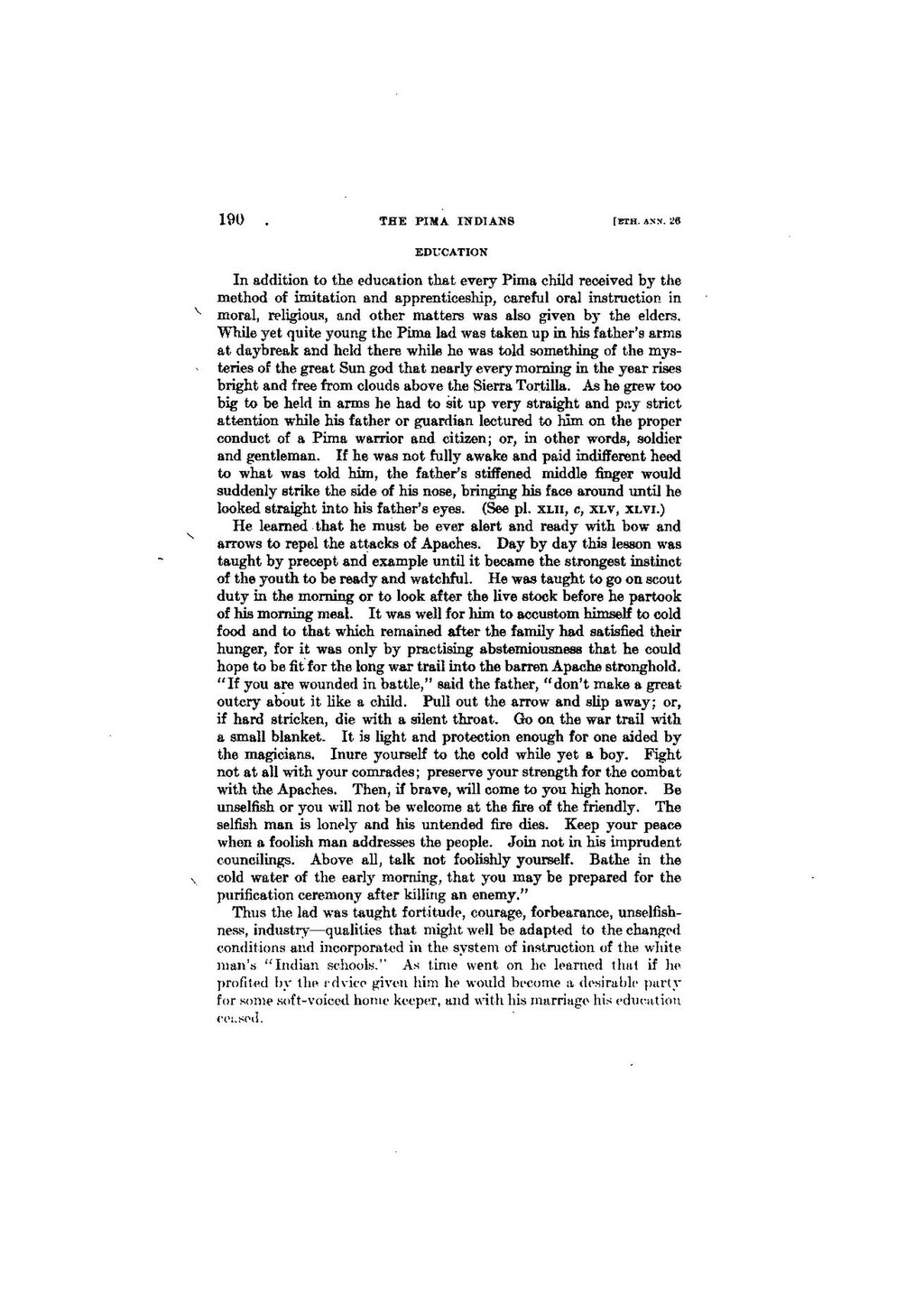EDUCATION
In addition to the education that every Pima child received by the method of imitation and apprenticeship, careful oral instruction in moral, religious, and other matters was also given by the elders. While yet quite young the Pima lad was taken up in his father's arms at daybreak and held there while he was told something of the mysteries of the great Sun god that nearly every morning in the year rises bright and free from clouds above the Sierra Tortilla. As he grew too big to be held in arms he had to sit up very straight and pay strict attention while his father or guardian lectured to him on the proper conduct of a Pima warrior and citizen; or, in other words, soldier and gentleman. If he was not fully awake and paid indifferent heed to what was told him, the father's stiffened middle finger would suddenly strike the side of his nose, bringing his face around until he looked straight into his father's eyes. (See pl. XLII, c, XLV, XLVI.)
He learned that he must be ever alert and ready with bow and arrows to repel the attacks of Apaches. Day by day this lesson was taught by precept and example until it became the strongest instinct of the youth to be ready and watchful. He was taught to go on scout duty in the morning or to look after the live stock before he partook of his morning meal. It was well for him to accustom himself to cold food and to that which remained after the family had satisfied their hunger, for it was only by practising abstemiousness that he could hope to be fit for the long war trail into the barren Apache stronghold, "If you are wounded in battle," said the father, "don't make a great outcry about it like a child. Pull out the arrow and slip away; or, if hard stricken, die with a silent throat. Go on the war trail with a small blanket. It is light and protection enough for one aided by the magicians. Inure yourself to the cold while yet a boy. Fight not at all with your comrades; preserve your strength for the combat with the Apaches. Then, if brave, will come to you high honor. Be unselfish or you will not be welcome at the fire of the friendly. The selfish man is lonely and his untended fire dies. Keep your peace when a foolish man addresses the people. Join not in his imprudent councilings. Above all, talk not foolishly yourself. Bathe in the cold water of the early morning, that you may be prepared for the purification ceremony after killing an enemy."
Thus the lad was taught fortitude, courage, forbearance, unselfishness, industry—qualities that might well be adapted to the changed conditions and incorporated in the system of instruction of the white man's "Indian schools." As time went on he learned that if he profited by the advice given him he would become a desirable party for some soft-voiced home keeper, and with his marriage his education ceased.
